
Sarah Lois Harmer is a Canadian singer, songwriter and environmental activist.

Emerson Drive is a Canadian country music band consisting of Brad Mates, Danick Dupelle, Mike Melancon (drums), and Dale Wallace. The band was founded in 1995 as 12 Gauge, which consisted of Mates, Pat Allingham (fiddle), Steven Swager, Chris Hartman (keyboards), Dan Binns (guitar), David Switzer (guitar), and Remi Barre (drums); Swager was replaced with Jeff Loberg early on. After recording under this name, the band moved to the United States in 1999 and renamed themselves to Emerson Drive. They released two albums for the former DreamWorks Records Nashville branch: Emerson Drive in 2002 and What If? in 2004. These accounted for their first hit singles in the United States: "I Should Be Sleeping", "Fall into Me", and "Last One Standing". After DreamWorks closed, Emerson Drive signed with Midas Records Nashville for the 2006 album Countrified, which produced their only American number-one single in "Moments". Further releases in the United States were unsuccessful, but the band continued to chart in Canada through releases on Open Road Recordings and Big Star Recordings over the next ten years.

Blackie and the Rodeo Kings are a Canadian folk rock–alternative country band with blues and country influences. The band was formed in 1996, in Hamilton, Ontario, by Tom Wilson, Stephen Fearing, and Colin Linden.
Oscar Lopez is a Chilean-Canadian guitarist, whose signature style blends Latin and jazz styles.
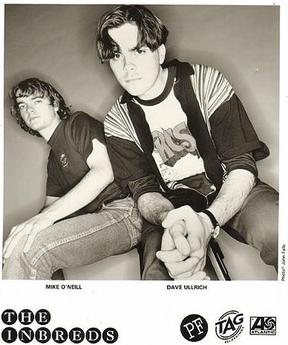
The Inbreds were a Canadian alternative rock band formed in 1992. Originally from Kingston, Ontario, the band relocated to Halifax, Nova Scotia in 1996 and remained based there until breaking up in 1998. The band was a duo, consisting of vocalist/bassist Mike O'Neill and drummer Dave Ullrich.
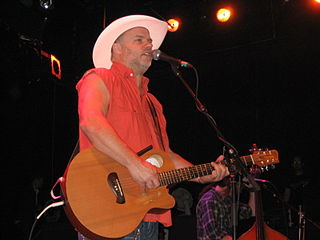
Frederick John Elgersma, known by the stage name Fred Eaglesmith, is a Canadian alternative country singer-songwriter. He is known for writing songs about vehicles, rural life, down-and-out characters, lost love and quirky rural folk. His songwriting uses techniques of short story writing, including unreliable narrators, surprise endings, and plot twists. In 2016, Eaglesmith toured extensively with his band.

William Patrick "Willie P." Bennett was a Canadian folk-music singer-songwriter, harmonica player, and mandolinist. Bennett was part of the 1970s folk music scene in Canada, and wrote and recorded many original songs. As well as performing as a solo artist, he was part of several well-known Ontario bands.
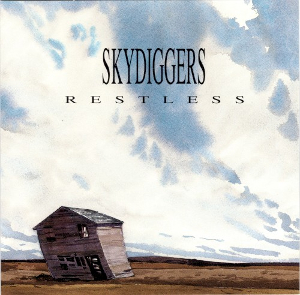
Restless is an album by the Canadian band Skydiggers, released in 1992. It was the band's most commercially successful release, and produced their biggest chart hit, "A Penny More". The band and album were nominated for two Juno Awards.
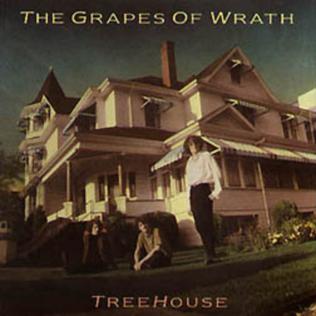
Treehouse is the second album by the Canadian band the Grapes of Wrath, released in 1987 on Nettwerk.

Wendy Lands is a Voiceover Actor and Canadian singer and songwriter, most noted for receiving a Juno Award nomination for Best New Solo Artist in 1997.
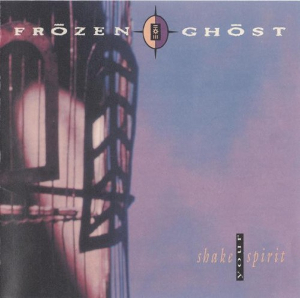
Shake Your Spirit is the third album by the Canadian band Frōzen Ghōst, released in 1992. It was recorded in early 1991. It was the band's final album.
Farmer's Daughter was a Canadian country music group. Farmer's Daughter recorded three studio albums and charted sixteen singles on the Canadian country music charts. Their highest charting single was the Number One song "Cornfields or Cadillacs".
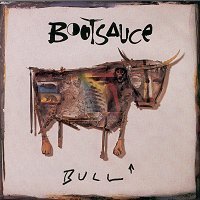
Bull is the second album by the Canadian band Bootsauce, released in 1992. "Love Monkey #9", "Whatcha' Need" and "Big, Bad & Groovy" were released as singles. The album was nominated for a Juno Award, in the "Best Album Design" category. It is also their first album to feature their permanent drummer John Lalley.
Chris Sheppard, also known as DJ Dogwhistle, is a Canadian DJ, record producer and musician.

Scott Merritt is a Canadian singer-songwriter and record producer. Most prominent in the 1980s, he was a shortlisted nominee for Most Promising Male Vocalist at the Juno Awards of 1986.
Templar were a Canadian alternative rock band from Vancouver, British Columbia, most noted for garnering a Juno Award nomination for Best New Group at the Juno Awards of 2001.

...But You Can Call Me Larry is an album by the Canadian musician Lawrence Gowan, released in 1993. The album's first single was "When There's Time "; three more singles were released. The album went gold in Canada. Gowan is credited by his full name on the album cover.
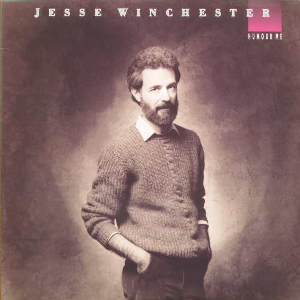
Humour Me is an album by the American-Canadian musician Jesse Winchester, released in 1988. It was his first album in seven years. Humour Me was nominated for a Juno Award, in the "Best Roots or Traditional Album" category. "Well-a-Wiggy" had been a minor hit for the Weather Girls.

A Timeless Place is an album by the musician Jeri Brown, released in 1995.
"Your Daddy Don't Know (What Your Mama's Gonna Do Tonight)" is a song by the Canadian rock band Toronto, from their 1982 album Get It on Credit.















